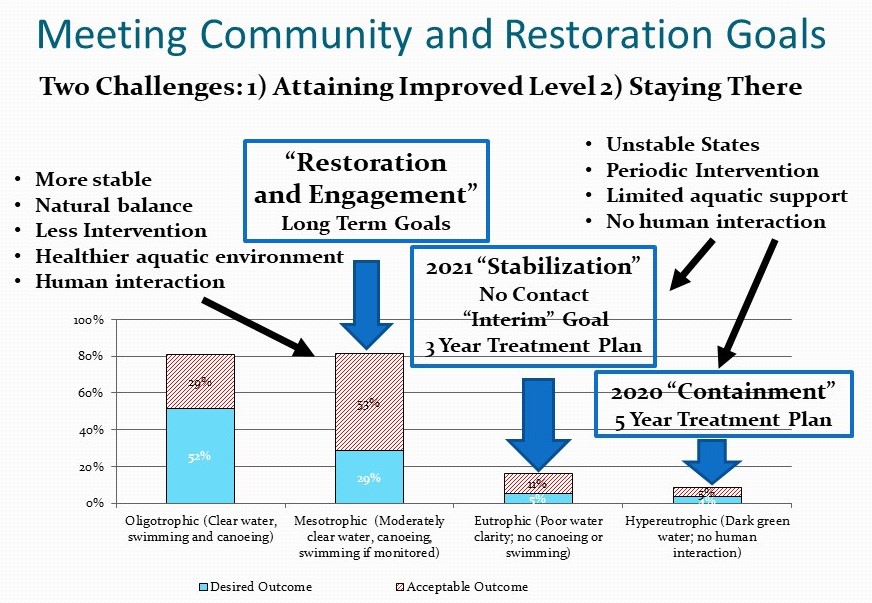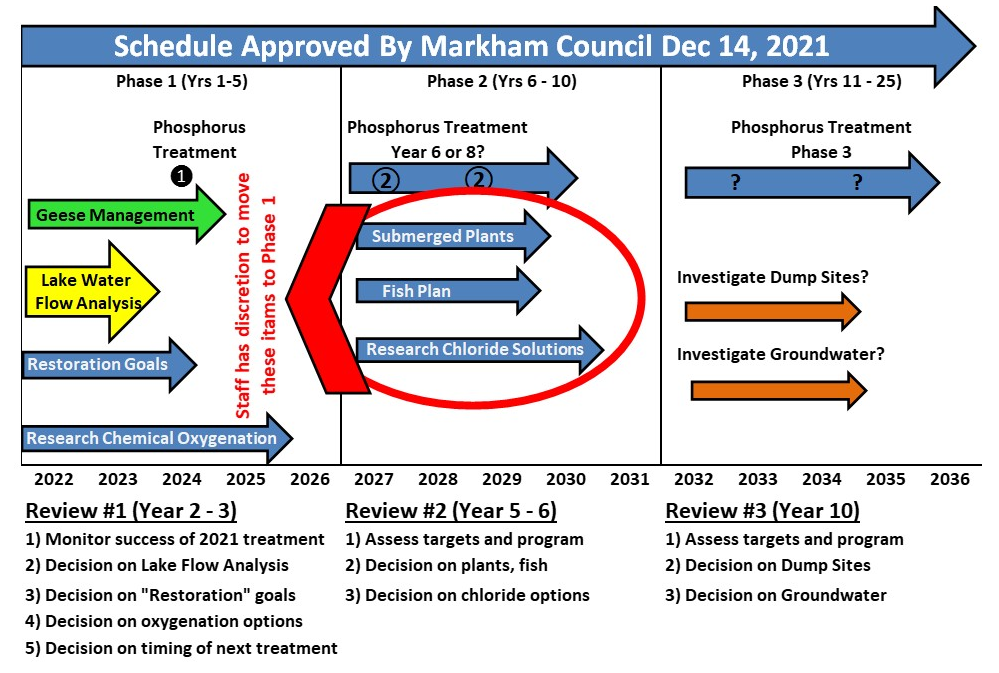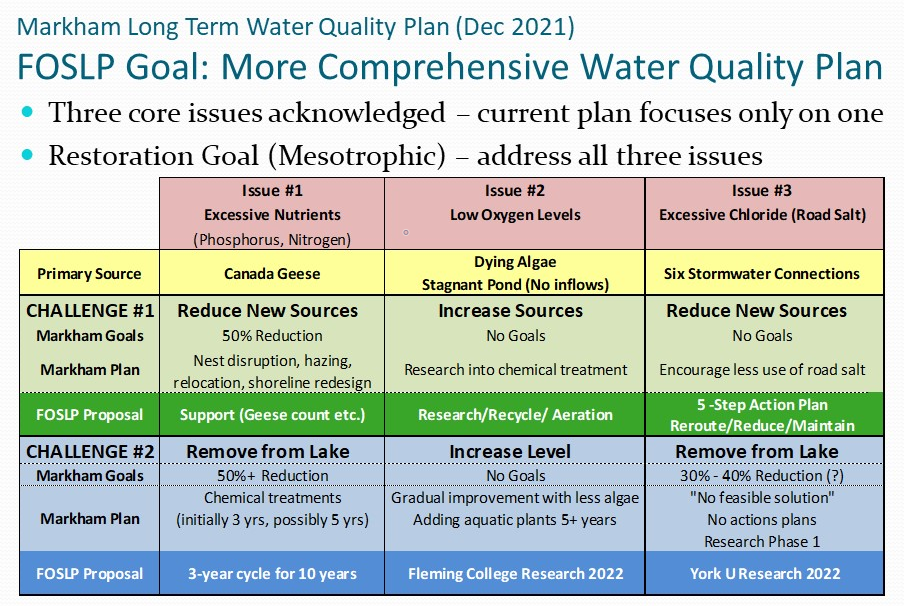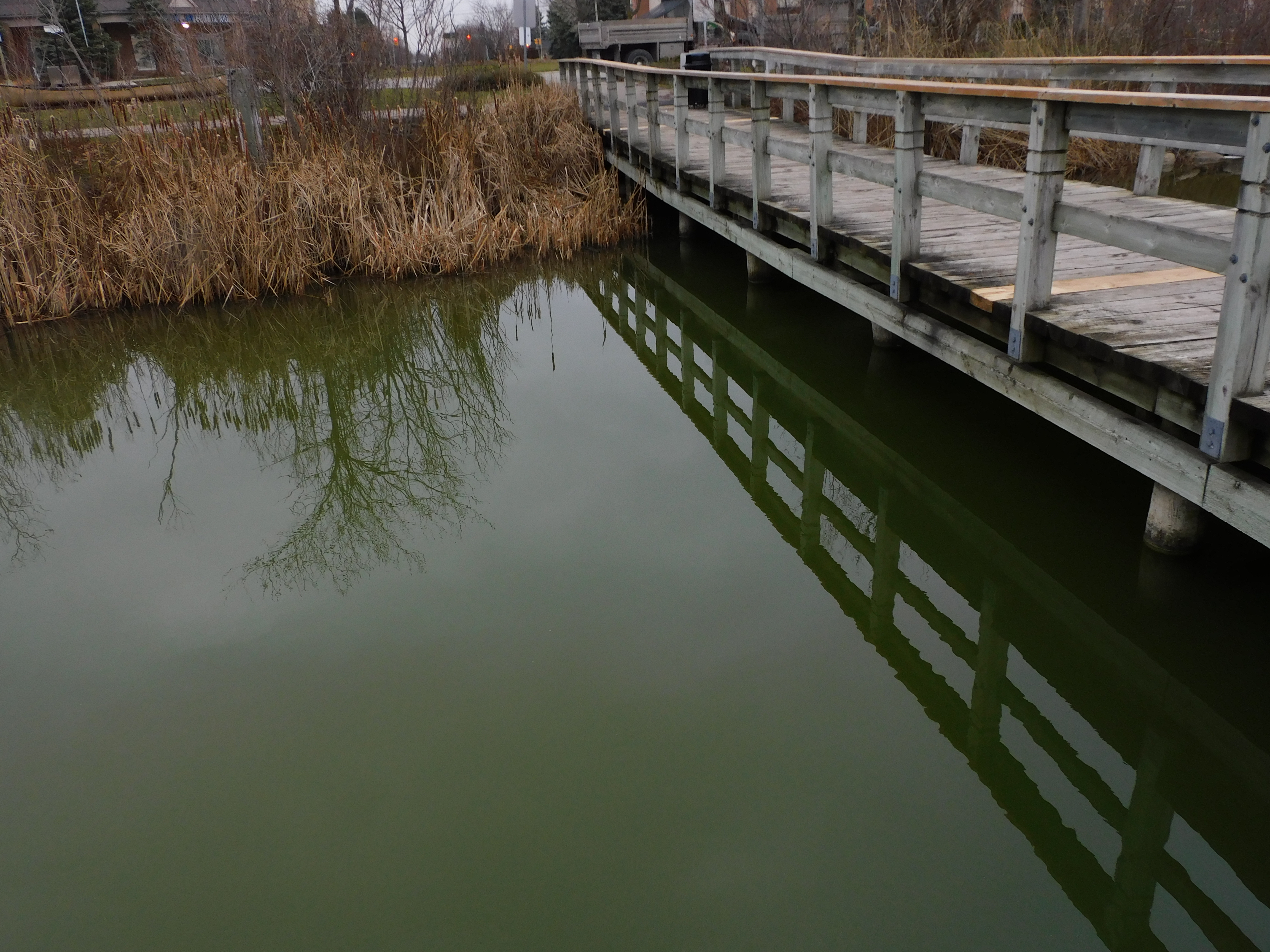ADDRESSING SWAN LAKE WATER QUALITY ISSUES
There are no streams flowing in or out of Swan Lake so Swan Lake is a unique environmental structure with its own particular set of problems. In 2012, in terms of water quality, Swan Lake was ranked 15 out of 17 man-made urban lakes in Ontario.
Approved Long-term Water Quality Plan Falls Short of Restoration!
In December 2021, Markham Council approved a long-term water quality program that should marginally improve the water quality in Swan Lake, but the aquatic environment will still not be environmentally stable – the death spiral for the lake will continue and necessitate frequent intervention.
In our March 2021 community survey, area residents strongly supported the more challenging “restoration” goal as an important community objective.

Markham’s current plan focuses on addressing the excessive amount of phosphorus in Swan Lake, attributed primarily to Canada Geese. During the summer of 2021, a chemical treatment was applied to reduce the phosphorus content in Swan Lake and an additional treatment is scheduled for 2024. The need for continuing treatment will be reviewed in 2026. The initial 3-year treatment cycle is a significant improvement over originally proposed 5-7 year treatment cycle, but this is still not enough to “restore” a healthy aquatic environment.
In December 2021, Markham Council approved a long-term plan to improve the water quality in Swan Lake at an estimated cost of over $1.7 million over 10 years with total cost of $5.2 million over 25 years but this will not be enough. More effort and more money will be required particularly during the next 10 years.
The following chart summarizes the 25-year plan approved by Council.

More Comprehensive Restoration Program Required
Markham’s current policy also sets out a “no contact” restriction on the use of the lake, meaning no canoeing, kayaking or ice skating. Fishing and a fountain will be restored once water quality improves. FOSLP is asking Markham to establish a long-term goal that will support greater human interaction with the water and has asked Markham to adopt a policy framework comparable to Brampton’s Lake Enhancement strategy.
Unfortunately, Markham’s approved program falls far short of “restoring” the water quality in Swan Lake, primarily because it is only focused on reducing excessive amount of phosphorus in the lake, the nutrient that fertilizes and stimulates algae growth.
Restoration is tied to addressing two other critical issues in Swan Lake not adequately addressed by the current plan:
- Excessive chloride due to road salt entering the lake. Swan Lake already contains over 5 times the safe chloride level for aquatic life and over 3 tonnes of chloride are added each year through the stormwater system. FOSLP has submitted a report showing there are practical solutions for ending the lake’s stormwater management role.
- The lake is essentially a “stagnant pond” with naturally very low oxygen levels. More work is required to identify ways to improve oxygen levels.



